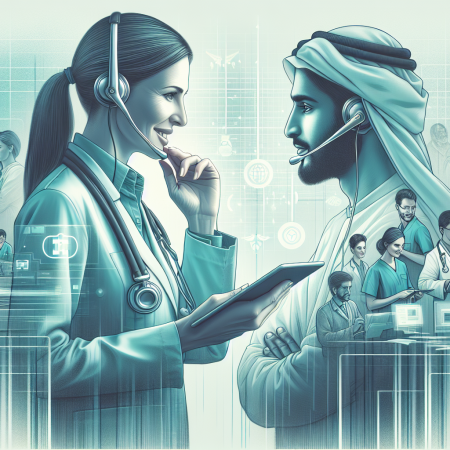The Importance of Medical Translation
Medical translation services are a vital cog in the wheel of the global healthcare system, playing a pivotal role in ensuring effective communication and understanding between medical professionals and patients who speak different languages.
Role of Medical Translation in Healthcare
The role of medical translation in healthcare is multi-faceted. On one hand, it aids in bridging language barriers that can lead to miscommunication between medical professionals and patients. This miscommunication can reduce satisfaction for both parties and decrease the quality of healthcare delivery and patient safety.
On the other hand, medical translation services enhance the effectiveness of healthcare delivery by enabling patients to fully comprehend their medical condition, treatment options, and any potential risks or side effects. This understanding is crucial for patient safety, as miscommunication or misinterpretation of medical information can lead to improper diagnosis, incorrect treatment, or other harmful consequences.
For instance, medical document translation services can be used to translate patient medical records, doctor’s notes, prescription information, and other crucial documentation. This ensures that important health information is accurately conveyed, even when the patient and healthcare provider speak different languages.
Growing Demand for Medical Translation Services
The demand for medical translation services is on the rise as healthcare becomes more diverse and globalized. An increasing number of patients who speak languages other than English seek medical care, necessitating the need for effective translation services to ensure optimal healthcare delivery (Certified Medical Interpreters).
This surge in demand is not just limited to face-to-face interactions in healthcare settings. As the digital landscape expands, so does the need for website translation services for healthcare institutions that serve multilingual populations.
Similarly, the need for translation services extends to other areas of healthcare such as legal document translation for medical legalities, technical translation services for medical research and studies, and financial translation services for medical billing and insurance matters.
Given this growing demand, the importance and role of medical translation services in healthcare are only expected to increase in the coming years. It is therefore crucial for healthcare providers to collaborate with certified translation services to ensure accurate, efficient, and reliable translations for improved patient care and safety.
Ensuring Quality in Medical Translation
When it comes to the realm of healthcare, the need for precision cannot be overstated. This holds especially true for medical translation services, where accuracy is paramount.
The Need for Specialized Medical Translators
Medical translation services play a crucial role in bridging the language barrier in healthcare settings. They facilitate comprehensive understanding for patients about their medical conditions, treatment options, and any potential risks or side effects (Certified Medical Interpreters). Given the specialized and technical nature of medical terminology, it is essential to utilize the services of skilled medical translators who have a robust knowledge base in the field of medicine.
Not only should these translators be proficient in the necessary languages, they also need a deep understanding of medical terminology, procedures, and common practices in healthcare. This expertise allows them to provide accurate and effective translations that can be critically important to patient outcomes. For more information on how to find a specialized translator, visit our certified translator page.
Importance of Accuracy in Medical Translation
The critical nature of medical documentation and the potential impact on patient health make accuracy a critical requirement in medical translation. Any miscommunication or misinterpretation of medical information can lead to improper diagnosis, incorrect treatment, or even life-threatening consequences (Certified Medical Interpreters).
As highlighted by Commit Global, a single mistranslation in a medical document can lead to serious repercussions. Therefore, ensuring accurate and high-quality medical translation is not just a matter of professional standards, but it directly correlates to patient safety and effective healthcare delivery.
Moreover, medicine is a constantly evolving field. Medical translators must stay updated with the latest terminology and research to ensure accurate translations (Commit Global). This ongoing professional development is what sets specialized medical translators apart and makes them an invaluable asset in healthcare settings.
Ensuring accuracy in medical translation services is a complex but vital task, and it is one that requires both specialized knowledge and a dedication to precision. By recognizing the importance of these services and the role they play in patient safety, healthcare providers can help bridge the language gap and deliver high-quality care to all patients. For more detailed insights on this topic, visit our page on medical document translation.
Medical Translation and Patient Safety
Patient safety is at the core of healthcare services. However, language barriers often pose a significant challenge in achieving this goal. With the help of medical translation services, healthcare providers can ensure effective communication and improve patient safety.
Consequences of Miscommunication in Healthcare
Language barriers in healthcare often lead to miscommunication between medical professionals and patients. This not only reduces satisfaction for both parties but also decreases the quality of healthcare delivery and patient safety NCBI. Miscommunication or misinterpretation of medical information can lead to an improper diagnosis, incorrect treatment, or other harmful consequences, underlining the crucial role of accurate medical translation in patient safety Certified Medical Interpreters.
Moreover, the use of interpreter services can contribute to increased cost and length of treatment visits. This further highlights the need for efficient and accurate medical translation services in the healthcare industry.
Enhancing Patient Understanding and Safety
Medical translation services play a crucial role in bridging the language barrier in healthcare settings. By providing accurate translations of medical documents, they allow patients to fully understand their medical condition, treatment options, and any potential risks or side effects Certified Medical Interpreters.
The use of online translation tools such as Google Translate and MediBabble in hospitals can further improve the satisfaction of medical providers and patients and enhance the quality of healthcare delivery and patient safety NCBI. However, these tools should be used as aids and not as replacements for professional medical translation services.
In conclusion, accurate and high-quality medical translation is not just a matter of ensuring clear communication between healthcare providers and patients. It is a critical factor in patient safety and health outcomes and should therefore be given utmost importance Commit Global. For more information on certified translation services, visit our website.
Professional Development for Medical Translators
Professional development is crucial for medical translators, ensuring they remain current with evolving medical terminology and best practices. It involves both initial training programs and ongoing learning opportunities.
Training Programs for Medical Interpreters
There are numerous training programs and certifications available for individuals interested in pursuing a career as a medical interpreter. These programs equip them with the necessary skills and knowledge to excel in the field of medical translation services. They cover essential areas such as medical terminology, procedures, and practices, as well as cultural sensitivity, enabling them to accurately convey information between healthcare professionals and patients from different linguistic and cultural backgrounds.
Moreover, the healthcare industry often requires certified medical interpreters who have completed specialized training programs and passed certification exams. This certification is a testament to their level of professionalism and their ability to provide accurate medical translation services.
Staying Updated with Evolving Medical Terminology
The field of medicine is constantly evolving, with new research and medical innovations being introduced regularly. Therefore, medical translators must stay updated with the latest medical terminology and research to ensure accurate translations (Commit Global).
This ongoing learning can be achieved through various avenues, such as attending medical seminars, subscribing to medical journals, or participating in specialized continuing education programs. Moreover, several online platforms provide up-to-date resources and courses for translators to continually refine their medical knowledge and translation skills.
Medical translation services often require the use of specialized translators who have expertise in both medicine and translation, ensuring accuracy and precision in the translations (Commit Global). Therefore, as a medical translator, investing in professional development is not just a necessity but a crucial factor in providing high-quality translation services.
Whether you are a certified translator offering birth certificate translation, website translation services, legal document translation, marriage certificate translation, technical translation services, immigration document translation, software translation, voice-over services, medical document translation, financial translation services, patent translation services, telephone interpretation services, or video transcription and translation, staying updated with your area of specialty is key to maintaining high standards and meeting clients’ expectations.
Legal Aspects of Medical Translation
The legal framework surrounding medical translation services is designed to ensure that all individuals, regardless of their language proficiency, have access to quality healthcare. These laws and regulations emphasize the need for accuracy, confidentiality, and cultural competence in medical translation and interpretation.
Ensuring Compliance with Laws and Regulations
Medical translation services must adhere to a variety of laws and regulations, both at the federal and state levels. These regulations are in place to safeguard the rights of patients with limited English proficiency and to ensure that they receive the same standard of care as their English-speaking counterparts.
These laws often require healthcare institutions to provide interpretation services, either in-person or via telephone or videoconferencing. Failure to provide these services can lead to legal consequences, such as fines or loss of accreditation.
Healthcare providers have a professional and ethical obligation to treat all patients according to a standard of care determined by their field. This includes ensuring that patients understand their medical condition, treatment options, and the potential risks and benefits associated with each option. Medical translation services play a crucial role in fulfilling this obligation, particularly when treating patients with limited English proficiency (American Journal of Psychiatry).
The Role of Executive Order 13166
Executive Order 13166, enacted in April 2000, is a key piece of legislation in the realm of medical translation. This order was designed to improve access to services for people with limited English proficiency, in accordance with Title VI of the Civil Rights Act, which prohibits discrimination on the basis of national origin.
Under this order, all federally funded organizations, including most healthcare providers, are required to provide language assistance services, such as medical translation and interpretation, to individuals with limited English proficiency. These services must be provided free of charge and must be accurate and timely to ensure effective communication.
Despite the provisions of Executive Order 13166, data show that professional medical interpreters are still underutilized in the healthcare setting, and multiple barriers to appropriate use have been identified, including limited time and access to interpreters.
However, the use of professional interpreters has been shown to increase patient satisfaction, decrease adverse outcomes, and improve adherence and positive outcomes. Moreover, patients with limited English proficiency have expressed a preference for professional interpreters over their bilingual family members and friends.
Given the legal obligations and the proven benefits of professional interpretation, healthcare institutions and providers must prioritize the utilization of certified medical translation services. Whether it’s medical document translation, telephone interpretation services or video transcription and translation, professional services can ensure the highest level of accuracy and confidentiality, ultimately promoting patient safety and satisfaction.
Impact of Medical Translation on Patient Outcomes
Understanding the impact of medical translation on patient outcomes provides a compelling argument for the need for professional medical translation services. This involves considering aspects such as patient satisfaction, effective communication, utilization of healthcare services, and the delivery of culturally competent healthcare services.
Satisfaction, Communication, and Utilization
The use of professional interpreters in healthcare settings has been shown to increase patient satisfaction, decrease adverse outcomes, and improve adherence and positive outcome rates (American Journal of Psychiatry). This is particularly important for patients with limited English proficiency (LEP), who have expressed a preference for professional interpreters over bilingual family members and friends.
Medical providers have a professional and ethical obligation to treat all patients according to a standard of care determined by their field. Ensuring clear and effective communication through professional translation services is a significant part of this obligation. Inadequate communication may result in misunderstandings, medical errors, decreased utilization of healthcare services, and ultimately, poorer patient outcomes.
Culturally Competent Healthcare Service Delivery
Providing culturally competent healthcare service delivery is an essential aspect of improving health outcomes, increasing the efficiency of clinical staff, and improving patient satisfaction. Language barriers contribute to disparities in healthcare access and outcomes for patients from culturally and linguistically diverse backgrounds (CALD).
Patients from CALD backgrounds with LEP often experience compromised care, longer hospital stays, higher rates of medical errors, and poorer patient satisfaction. By implementing professional medical translation services, healthcare providers can bridge the communication gap and provide high-quality, culturally competent care.
Medical translation services are a crucial solution for overcoming language barriers in healthcare, contributing to improved patient satisfaction, better communication, and more effective utilization of healthcare services. They also play an essential role in providing culturally competent care, leading to improved health outcomes for patients from diverse backgrounds. For more information on obtaining professional medical translation services, visit our certified translation services page.






